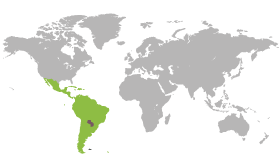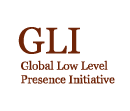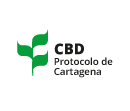 Overview
Overview


Area km2: 406,796
Population: 7,359,000
Capital: Asuncion
ISO 3166: PY

Population density:
18.1 hab/km2

National flower:
Passion fruit (Passiflora edulis)
Paraguay is an important player in the export of agricultural products, especially soybean and soybean byproducts, as well as maize, wheat, sesame, sunflower oil, sugar, stevia and beef. A high percentage of the Paraguayan population derive their livelihoods from agriculture, especially in rural areas, often in the form of subsistence farming. For the most part, Paraguayan farmers have adopted sustainable production systems that include no-tillage farming, fertilization and use of improved seeds conferring resistance to herbicides, diseases and insect pests.








 Trade
Trade Are there local developments?
Are there local developments?








